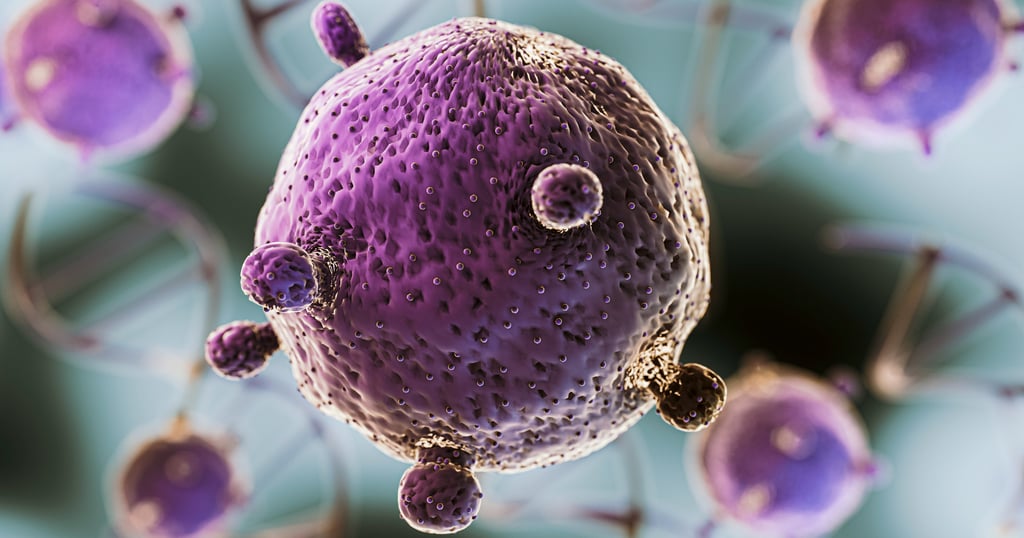What is autoimmune disease?
Discover what autoimmune disease is, its main types, causes, symptoms and treatments. Understand how it affects the body and how it is possible to live well with the diagnosis.
DOENÇA
Escolha Mast
5/2/20254 min read


What is an autoimmune disease?
Autoimmune disease is the name given to a group of conditions in which the immune system, which normally protects the body against viruses, bacteria and other threats, begins to attack the body's own healthy cells and tissues. It is as if the body's “defense army” gets confused and starts acting against the very thing it should be protecting.
These diseases can affect different parts of the body, such as the skin, joints, glands, intestines and even vital organs such as the heart and lungs. It is estimated that more than 50 million people live with autoimmune diseases in the United States alone, according to the American Autoimmune Related Diseases Association (Published Autoimmune Research - Autoimmune Association). In Brazil, this number is also significant, although the data is still underestimated due to the difficulty in diagnosing them.
Main autoimmune diseases
There are more than 80 types of autoimmune diseases already identified by medicine, and each one manifests itself in a different way. Some are more common and widely known.
One of the best-known is lupus, which can affect the skin, joints, kidneys and other organs. It usually causes intense fatigue, joint pain and skin blemishes. Another very common disease is rheumatoid arthritis, which causes painful inflammation in the joints and, over time, can lead to deformity.
Multiple sclerosis is a condition that affects the central nervous system, impacting movement, vision and motor coordination. Type 1 diabetes, also an autoimmune disease, occurs when the immune system destroys the cells in the pancreas responsible for producing insulin.
Causes of autoimmune diseases
The exact causes of autoimmune diseases are not yet fully understood by science. However, it is known that genetic, environmental and hormonal factors are involved. People with a family history of autoimmune diseases are more likely to develop some condition.
In addition, external agents such as viral infections, exposure to chemical substances, intense stress and even inadequate diet can act as triggers. An imbalance in the intestinal microbiota — the “good” bacteria in the intestine — has also been studied as a relevant factor, especially in inflammatory bowel diseases, such as Crohn’s disease.
Interestingly, autoimmune diseases affect women more than men. About 80% of people with these conditions are female, according to data from the World Health Organization (WHO). Female hormones and a more active immune system in women may be related to this higher incidence.
Symptoms of autoimmune diseases
Symptoms vary greatly depending on the disease and the organ affected. However, there are common signs that can raise suspicions and lead to the search for a diagnosis.
Constant fatigue, even after a good night’s sleep, is one of the most common symptoms. Another typical sign is joint pain, which appears for no apparent reason and may be accompanied by swelling. A persistent low-grade fever is also an indication that something is wrong with the immune system.
In addition, changes in the skin may appear, such as spots, rashes, blisters or loss of pigmentation. Gastrointestinal symptoms, such as frequent diarrhea, abdominal pain, and unintentional weight loss, are also common in some autoimmune diseases.
It is important to remember that symptoms can come and go, that is, there are periods of flare-ups and others of remission. This can make diagnosis difficult, which usually requires blood tests, antibody tests, and detailed clinical evaluation with a specialist.


How are autoimmune diseases treated?
Although most autoimmune diseases do not yet have a definitive cure, they can be treated effectively. The main goal of treatment is to control the activity of the immune system and alleviate symptoms.
The most commonly used medications are immunosuppressants, which reduce the immune system's response, and anti-inflammatories, which help control pain and swelling. In some cases, biologicals are also used, which are modern medications that act more specifically on the immune system, reducing side effects.
In addition, treatment may include physical therapy, dietary changes, and psychological support. An anti-inflammatory diet, rich in fruits, vegetables, whole grains, and sources of omega-3, has shown positive results in several studies.
Maintaining a healthy lifestyle, with quality sleep, regular exercise, and stress management, also contributes to a more balanced life with fewer crises. It is worth remembering that each case is unique and treatment must be individualized, with medical guidance.
Autoimmune skin diseases
Autoimmune skin diseases deserve attention because they are visible and often impact a person's self-esteem. The best-known are:
Psoriasis: causes red lesions with silvery scales, usually on the elbows, knees, scalp and back.
Vitiligo: causes the loss of skin color in specific areas, such as the face, hands and feet.
Cutaneous lupus: a form of lupus that mainly affects the skin, with lesions that can worsen with sun exposure.
Pemphigus: causes blisters on the skin and mucous membranes that rupture easily, causing pain and risk of infection.
Although there is no cure, these diseases can be controlled with appropriate treatments, such as topical creams, phototherapy and oral or injectable medications.
It is essential that the diagnosis is made as soon as possible, because the sooner treatment is started, the greater the chances of avoiding complications and maintaining quality of life.
A message of hope: you are not alone
If you live with an autoimmune disease or suspect that something is wrong with your health, remember: you are not alone. Many people face the same challenges and move forward with courage and determination. Medicine is constantly evolving, bringing new treatment possibilities and hope for an increasingly better life.
Even in the face of difficulties, never forget that you are strong, unique and deserve to be happy. Facing a health condition does not define who you are. Your courage, your joy and your ability to overcome are greater than any diagnosis.
Live each day with ease, celebrate the small victories and do not be afraid to ask for help. Your emotional well-being is also a fundamental part of your treatment.
Thank you very much for being here and trusting our content. Keep following us on the Escolha Mast blog for more information, tips and inspiration. Until next time! 🌿💙
ESCOLHA MAST
Escolha Mast is an informative website that publishes blog posts and also promotes products that can help you in your quest for health and well-being.
CONTACT INFORMATION
Email: escolhamast@gmail.com
Phone: +55 068 99981-0331
© 2025. All rights reserved to Escolha Mast.
Choose to live well!
